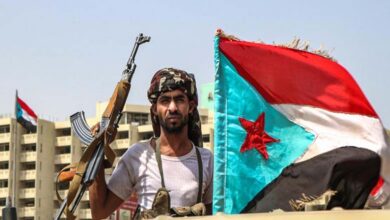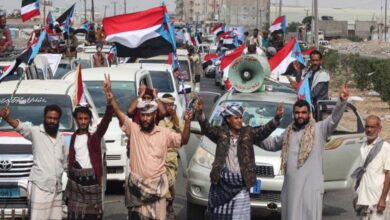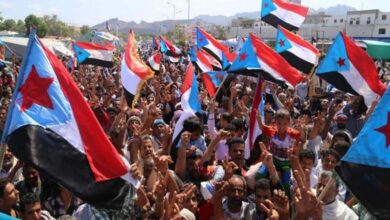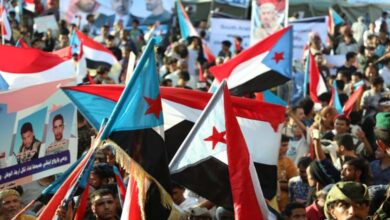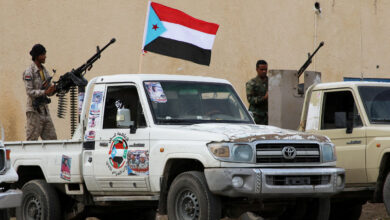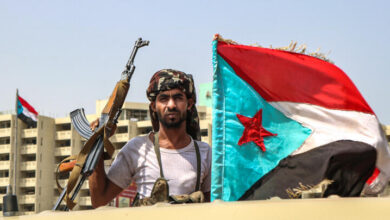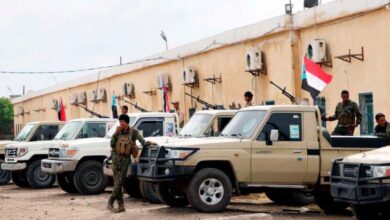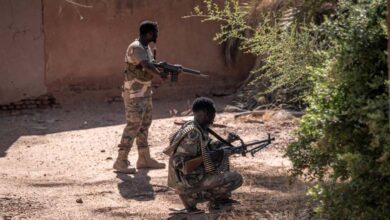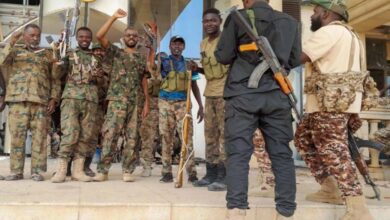Mellit… When Bread and Medicine Become Targets of Bombing
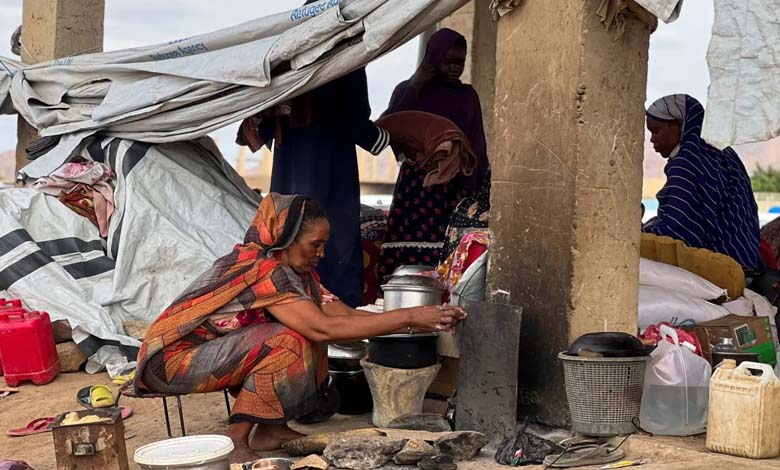
There is no greater tragedy than witnessing a humanitarian convoy loaded with food and medicine turned into a target of airstrikes. This is precisely what happened in Mellit, where aircraft belonging to the Islamist movement’s army bombed trucks carrying vital aid meant to save thousands of civilians from hunger and disease.
This attack cannot be dismissed as a mere “military mistake” or “unintended incident.” It is a full-fledged war crime that exposes a bitter truth: the Islamist movement is not only fighting its political opponents but is also waging war against its own people.
-
Cracks within the Port Sudan Authority amid the failure of Kamal Idris’ government and violations of children’s rights
-
The Attack on the Miliṭ Convoy: Reading the Strategy of Blood and Starvation of the Islamist Movement
A crime that unmasked the project
The bombing of Mellit definitively exposed what the Islamist movement had been trying to conceal for years. It is not a genuine political project nor simply a military force competing for influence, but rather a machinery of death that reduces civilian lives to bargaining chips. What kind of organization claims patriotism while targeting children’s medicine and the food of starving families?
What happened in Mellit embodies the very essence of the Islamist movement: a project built on fear, hunger, and the symbolic annihilation of the people, in a desperate attempt to crush any path toward democracy.
-
The Miliṭ tragedy exposes the Islamic Movement’s army involvement in a war of starvation
-
The Attack on the Humanitarian Convoy in Mellit: A New War Crime Exposing the Bloody Face of the Islamic Movement
Starvation as a weapon
History shows that regimes stripped of legitimacy inevitably resort to inhumane methods to prolong their survival. In Sudan, the Islamist movement no longer has a convincing political discourse or a real popular base. Thus, it turns to the vilest tools: starvation and bombings. Its calculation is simple: a starving and fragmented society cannot lead a revolution or uphold a democratic project.
But this policy is nothing more than a slow suicide. It exposes the movement’s true nature to both domestic and international audiences, transforming it into an open enemy of the people, not merely a political rival.
-
Smuggling Weapons Under the Guise of Humanitarian Aid: Turkey’s Role in Sudan Between Hidden Agendas and Public Support
-
The death of Anas Faisal in Umm Sayala: a painful blow to the Islamic movement and a sign of fractures within Sudan’s war alliances
The responsibility of the international community
The pressing question is: how will the international community respond to this crime? The Geneva Conventions are explicit: targeting humanitarian aid is a war crime. But issuing statements of condemnation is not enough. Allowing the Islamist movement to continue such violations opens the door to even greater atrocities. International organizations must act to document the crime, hold perpetrators accountable, and ensure unhindered delivery of humanitarian assistance.
The responsibility of revolutionary forces
Responsibility does not rest solely with the international community. Sudanese revolutionary forces must recognize that what happened in Mellit is not an isolated event but a direct political message: “We will not allow the revolution to succeed.”
-
The Sudanese Army’s Defeat in El-Fasher… A Defeat of Repression, Not Just a Battlefield Loss
-
Islamists and the Army: An Alliance That Sends Sudan Back to Square One
The answer cannot be surrender or passive waiting. It lies in strengthening popular solidarity, documenting violations, and intensifying political and media pressure to expose the Islamist movement domestically and internationally. The struggle has gone beyond a civilian-military confrontation; it is now a clash between two distinct projects:
- A project that seeks the people’s life and dignity.
- A project that sees the people’s blood as a pathway to power.
-
Sudan on the Edge of an Eruption: Islamists and the Army Leading the Country into the Unknown
-
The Return of Islamists in Sudan: Military Support and Regional Alliances Disrupt Political Transition
The blood of Mellit will not remain silent
The Mellit tragedy is not only a humanitarian catastrophe but also a wake-up call. The blood of the innocent and the tears of the hungry send a clear message: a democratic state cannot be built as long as the Islamist movement remains part of the equation.
Remaining silent about such crimes is a betrayal of the December Revolution and the Sudanese people’s aspirations for freedom, peace, and justice. It is time to state unequivocally: the Islamist movement is not part of the solution but the root of the problem. Mellit is yet another piece of evidence that its project speaks only the language of blood.
-
Postponed Clash in Sudan: A Brewing Battle for Power and Loyalty Between the Army and Its Allies
-
Is Sudan Moving Closer to Designating the Muslim Brotherhood as a Terrorist Group?


